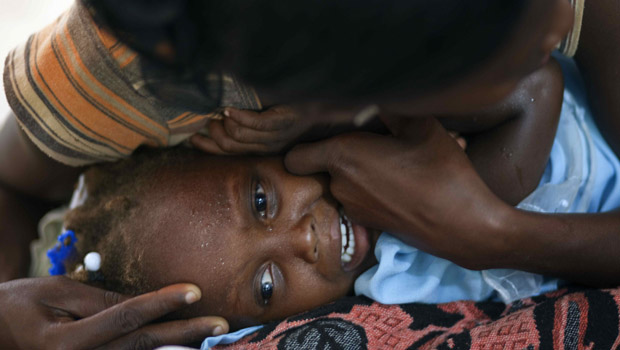By early Sunday, nearly 200 dead were confirmed dead in the poor Caribbean nation's worst health crisis since the Jan. 12 quake, and authorities said more than 2,000 people were sick.
The first two cholera cases outside the central Artibonite region were confirmed Saturday in Arcahaie, a town closer to the quake-devastated capital, Port-au-Prince. Experts also were investigating possible cases in Croix-des-Bouquet, a suburb of the capital, and radio reports said there were two dozen cases of diarrhea on Gonave island.
Health officials are fearful about the outbreak spreading into the capital, where thousands and thousands of people are living in unsanitary conditions in refugee camps.
"It will be very, very dangerous," said Claude Surena, president of the Haitian Medical Association. "Port-au-Prince already has more than 2.4 million people, and the way they are living is dangerous enough already." clearly a lot more needs to be done."
Aid groups and the government were rushing in medical and relief supplies, including 10,000 boxes of water purification, according to the World Health Organization.
The Ministry of Health has confirmed 194 deaths and a total of 2,364 cases of cholera, said Imogen Wall, a spokeswoman for the U.N. Office for the Coordination of Humanitarian Affairs.
"It's concentrated in Artibonite right now and we're doing our best to keep it that way," Wall said.
Dozens of patients lay on the floor awaiting treatment at the St. Nicholas hospital in the seaside city of St. Marc on Friday, some of them brushing away flies on mattresses stained with human feces.










